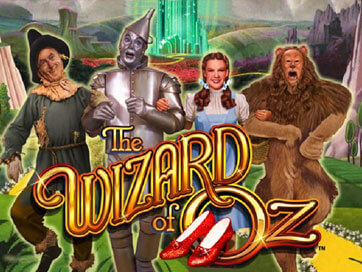-
Bonuses
- Minimum Deposit £5
- Free £5 No Deposit Casino
- £10 No Deposit Bonus
- 15 Free No Deposit Slots
- £15 Free Bingo No Deposit 2024
- £20 Free Spins
- £20 No Deposit Casino
- 30 Free Spins No Deposit
- 50 Free Spins
- 100 Free Spins
- 200 Deposit Bonus
- 300 Deposit Bonus
- 400 Deposit Bonus
- 500 Deposit Bonus
- First Deposit Bonus 2024
- Welcome Bonus
- Casino Bonuses
- Bingo No Deposit No Card
- Bingo No Deposit Casino
- Bingo No Deposit Bonus
- Casino Bonuses Guide
- Best Casinos
-
Best Online Slots
- Slots For Fun
- New Slots 2024
- All Slots
- Free Bonus Slots
- Free slots no download
- Video slots
- Online slot machines
- Mobile Slots
- Pay By Mobile Slots
- Free Spins No Deposit No Wager
- Coin Master Free Spins
- No Card Details Free Spins
- Coin Master Rare Cards
- Free Online Scratch Cards
- Slot Volatility
- Win Real Money
- Apps
- Payments
Solving The Gambling Addiction Problem: How to Play Without Turning Addicted
Addictive drugs and gambling rewire brain circuits in similar ways. Learn how to prevent gambling addiction now.

Whether you bet on roulette, scratch cards, sports, slots, or poker online or in a casino — gambling addiction can interfere with work, lead to financial catastrophe, and strain relationships. You may even get to do things you never thought you would, like stealing money to pay your debts or gamble. You may think your problem is unique and can’t be stopped, but with the proper help you can certainly overcome a gambling addiction and regain control of your life. Acknowledging and recognizing the problem is the first step.
What is Gambling Addiction
Gambling addiction (or ludomania, or compulsive gambling), is a type of impulse-control disorder. Problem gamblers are unable to control that impulse to gamble, even when their behavior becomes highly destructive – ruining themselves, their jobs or relationships with their loved ones. Gambling becomes their new world and all they want to do, while the consequences simply don’t matter. Problem gamblers keep gambling whether they’re broke or flush, up or down, happy or depressed – they can’t “stay off the bet”.
The Profile Of A Compulsive Gambler
The term “compulsive gambling” includes a condition known as pathological gambling, a progressive addiction where someone:
- tends to be increasingly preoccupied with betting and gambling
- feels the urge to bet more money and more frequently
- feels irritable or restless when trying to stop losses
- loses control over proper judgement—continues gambling although it becomes destructive
- hides gambling from friends and family members
History
It wasn’t until 1980 that the American Psychiatric Association identified pathological gambling as a mental disorder. It seems that in the 80s roughly over 1 million Americans were engaged in problematic gambling; in 2015, the National Council on Problem Gambling estimates that between 6 and 8.1 million adults are gambling addicts.
Famous people who had outrageously big problems with gambling include: Charlie Sheen (the Two and a Half Men star), Michael Jordan (the NBA icon), Floyd Mayweather Jr. (the professional boxer), Tobey Maguire (the actor from the first Spider-Man movie), Tiger Woods (the golf player), Michael Phelps (the Olympic swimmer).
Gambling Addiction Can Have Genetic Causes
University of Iowa from US confirmed in a 2014 study that pathological gambling runs in the family and showed that first-degree relatives of people with serious gambling addiction are 8 times more likely to develop this pathology in their lifetime than relatives of people without gambling addiction problems.
Another study carried out by scientists from the Queensland Institute of Medical Research and University of Missouri showed that „gambling addiction can be inherited”. 2,889 pairs of twins were investigated to see whether the environmental or genetic factors play a huge role in the development of pathological gambling. This study also checked if these factors interact in the same way in men’s and women’s gambling addiction. It seems that identical twins who used to gamble were way more likely to have a twin who developed a gambling addiction than non-identical twins.
Health Problems
Unique factors contribute to health problems like depression and insomnia among compulsive gamblers:
- Medical: Pathological gamblers have higher occurrences of peptic ulcer, insomnia, irritable bowel syndrome, migraines, high blood pressure, and many other stress-related physical issues than general population.
- Psychiatric: Gambling addiction is highly associated with bipolar disorder, major depressive disorder, panic and anxiety disorders, and hypomania. Addiction: 50% of gambling addicts are also substance abusers.
- Financial: Pathological gamblers also accumulate large debts that often result in bankruptcy and foreclosures on mortgages.
Budget Approach
The secret to staying debt-free is playing for enjoyment and fun. However, many people think of gambling as a way to make easy money, use gambling to distract themselves from life problems or just spend way more than they can actually afford. If you have a gambling problem or you just want gambling to not become a problem, follow these budget tips.
- Play for entertainment, don’t play for money
- Only gamble with cash you can afford to lose
- Set a money&time limit in advance
- Never chase losses
- Don’t take the credit/debit card with you
- Take breaks frequently
- Don’t use drugs/drink alcohol when gambling
Casinos use gambling to make money. They are not designed to work the other way around. By playing a lot you will lose more money than you receive! Make a bugdet and check your expenses all the time.
Habbitual & Social Approach: When Gambling Is A Problem
You may have a gambling addiction if:
- You have little or no control over your urge or desire to gamble. How difficult is for you to walk away?
- You gamble until you have spent all your money. You usually spend everything you have in an effort to win the cash back.
- You spend cash that is not available to spend on gambling. If you spend credit cash advances, bill money, cheat, steal, borrow, then you have a problem. If you lie or sell possessions in order to get money for gambling, then you have a HUGE gambling addiction.
- You hide your bad habits like gambling from family and friends. If they have voiced concern for your behaviour, or you think your gambling would cause the loved ones to be concerned, you choose to hide everything.
- You start abandoning old habits like running, swimming, getting out with friends, playing tennis, etc. IF other hobbies are taking less time – it’s a warning sign.
- You are not socializing enough. You don’t plan outdoor activities.
Banking Approach
Well, avid gamblers are famous for financial problems including bankruptcy, high debt, or poverty. Let’s see some banking tips to avoid a hugely negative effect. Set credit cards limits, one’s spare money to the limit when it can’t lead to excessive spending online.
Read also: A great Android app for new players interested in free gamesOpen a separate bank account just for your gambling funds (!).
Set a weekly limit for yourself when gambling – for example, $200. Even if you lose them all in one day, you SHOULD NOT use other funds. Wait for the next week instead. Go ahead and set a loss limit in order to avoid this.
Treatment
If one feels depressed, is in a critical period in life, feels the need to play excessively, one doesn’t need to fight the problem alone, he needs to contact one’s physician or phsycotherapist or visit support group.
Gambling problems affects individuals in different ways and gamblers often have unique needs for recovery. There’s no specific treatment, meaning that one type of treatment will not necessarily work for another. The hardest thing is to admit and realize that you need help.
Gambling is also called the “hidden addiction”, that’s why it’s especially important to find support. From family or from a therapist.
Cognitive-behavioral therapy for gambling addiction is focused on changing gambling thoughts and behaviors, such as false beliefs or rationalizations. It helps addicted people fight the gambling urge, handle the tricky emotions rather than escape through gambling, and solve work, relationship and financial issues caused by the addiction.
Pathological gamblers should reach out to a therapist for a proper treatment. The goal is to ”rewire” the brain by thinking about betting and gambling in a new way. This kind of treatment will change the gambler’s beliefs and thoughts.
Know that seeing a therapist doesn’t mean that you’re weak or can’t handle your issues. Therapy treatment is for those who are smart enough to realize they need help.
The ”Hobby” Approach
To handle the addictions it is really good for your body and mind to incorporate activities such as meditation, yoga, breath gymnastics. Find something you are passionate about such as music, art, music, books, or sports then find friends with the same interests.
The addicted gambler should understand how different factors trigger the gambling, and then he or she should start learning a number of ways of changing their behaviors and thoughts in order to avoid this bad habit. Avoid the social reasons or overcome boredom just by incorporating new habits into your daily routine – join a social group, start practicing a new hobby, exercise or talk with a friend.
What is Responsible Gambling?
Gambling in a responsible way means staying constantly in control of how much money and time we spend gambling. Even if we are placing a sports bet, playing bingo or poker, playing slots or buying a scratch card or a lottery ticket, gambling with a sense of responsability means seeing this activity as just a typical entertainment form in a really balanced lifestyle. All the forms of entertainment are expenditures, just as gambling, and responsible gambling means spending the time and money that we can afford in a reasonable manner while not forgetting the other responsabilities in life.
All venues are obliged to promote a responsible gaming, but remember that they are still businesses, and businesses run with money. Know when to stop.

Try out our Real Money Slot Machines












